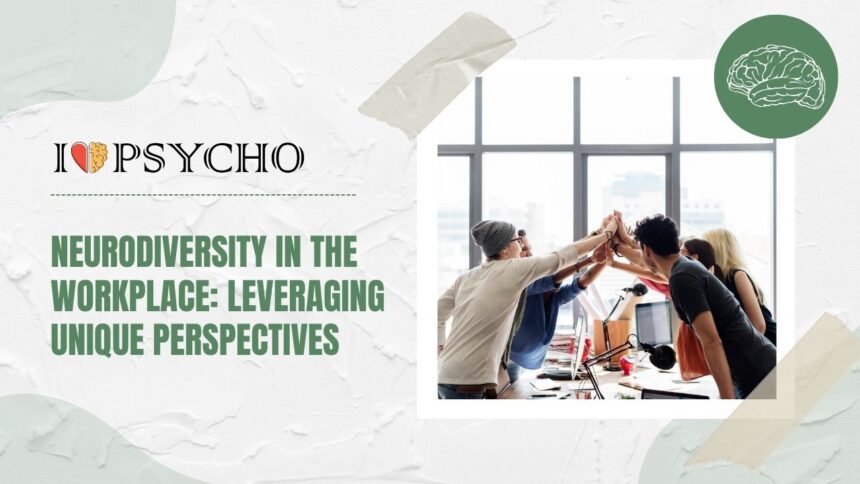Welcome to a world where diversity isn’t just encouraged but celebrated – the workplace. In this dynamic environment, embracing neurodiversity is not only essential but also incredibly valuable. Join us as we explore the fascinating realm of neurodiversity in the workplace and discover how it can revolutionize the way we work and interact with one another. Let’s dive in!
Defining neurodiversity and its importance in the workplace
Neurodiversity encompasses a range of neurological differences, including autism, ADHD, dyslexia, and more. These variations in brain function bring unique perspectives and strengths to the workplace. Embracing neurodiversity means recognizing that everyone’s mind works differently – and that’s a good thing!
In the workplace, neurodiverse individuals can offer fresh insights, innovative problem-solving skills, hyper-focus on tasks they are passionate about, and attention to detail that others may overlook. By fostering an inclusive environment that values these diverse talents, organizations can tap into a wealth of creativity and expertise.
Rather than viewing neurodiversity as a limitation or barrier to productivity, it should be seen as an opportunity for growth and enrichment. When all voices are heard and valued equally, magic happens – ideas flourish, collaboration thrives, and success knows no bounds.
Common misconceptions and stigmas surrounding neurodiversity
Neurodiversity in the workplace is a topic that has gained more attention in recent years, shedding light on the unique perspectives and talents individuals with neurodivergent traits bring to the table. However, despite increased awareness, there are still common misconceptions and stigmas surrounding neurodiversity that persist in many work environments.
One prevalent misconception is that neurodiverse individuals are not as capable or competent as their neurotypical counterparts. This belief undermines the valuable contributions they can make when given the right support and accommodations. Another stigma is that accommodating neurodiverse employees is too challenging or costly for businesses, which overlooks the benefits of fostering a more inclusive and diverse workforce.
It’s important to debunk these myths and educate others about the strengths and capabilities of neurodivergent individuals. By doing so, we can create a more accepting and supportive workplace where everyone has an opportunity to thrive based on their unique abilities.
Benefits of embracing neurodiversity in the workplace
Embracing neurodiversity in the workplace brings a myriad of benefits that can enhance innovation and productivity. By welcoming diverse perspectives, companies can tap into unique ways of thinking that traditional approaches may overlook. Neurodiverse employees often possess exceptional skills such as attention to detail, pattern recognition, and creativity.
Creating an inclusive environment for neurodiverse individuals fosters a culture of acceptance and respect within the organization. This not only boosts employee morale but also promotes teamwork and collaboration across different departments. Companies that prioritize neurodiversity tend to experience higher levels of employee engagement and retention.
Moreover, embracing neurodiversity can lead to increased problem-solving abilities and out-of-the-box thinking within teams. When individuals with varying cognitive styles work together, they complement each other’s strengths, resulting in more innovative solutions to challenges faced by the company.
Best practices for creating a neurodiverse-friendly work environment
Creating a neurodiverse-friendly work environment involves understanding and accommodating the unique needs of individuals with diverse neurological abilities. One key practice is promoting open communication and education throughout the organization. This includes raising awareness about different neurodivergent conditions and fostering a culture of acceptance and inclusivity.
Providing flexibility in work arrangements can greatly benefit neurodiverse employees. Offering options like remote work, flexible hours, or quiet spaces can help individuals thrive in their roles. Additionally, implementing clear communication strategies and setting expectations upfront can reduce misunderstandings and promote productivity among all team members.
Training managers and colleagues on how to support neurodiverse coworkers is essential for creating a supportive workplace environment. Encouraging empathy, patience, and understanding can go a long way in ensuring that everyone feels valued and respected for their contributions. By embracing these best practices, organizations can harness the unique perspectives of all employees to drive innovation and success.
Success stories of companies who have implemented neurodiversity initiatives
Let’s dive into some inspiring success stories of companies that have embraced neurodiversity in the workplace. One such company is SAP, a global software giant that actively recruits and supports employees on the autism spectrum. By leveraging their unique talents in areas like data analysis and quality assurance, these individuals have made significant contributions to the company’s innovation and growth.
Another example is Microsoft, which launched its Autism Hiring Program to tap into the skills of neurodiverse talent. Through tailored interview processes and ongoing support, they have successfully integrated autistic individuals into various roles across the organization, fostering a culture of inclusion and collaboration.
Similarly, EY (Ernst & Young) has implemented initiatives to embrace neurodiversity by providing training programs and mentorship opportunities for individuals with diverse neurological profiles. This approach has not only enriched their workforce but also enhanced creativity and problem-solving within teams.
These success stories highlight how companies can benefit from harnessing the strengths of neurodiverse individuals, leading to greater innovation, productivity, and employee satisfaction.
Challenges and solutions for accommodating neurodiverse employees
Navigating the challenges of accommodating neurodiverse employees in the workplace can require a shift in traditional approaches. Communication differences, sensory sensitivities, and social interactions may pose hurdles for both employees and employers.
Finding solutions often involves implementing tailored accommodations such as providing quiet workspaces, offering flexible schedules, or utilizing assistive technologies. Training programs to educate colleagues about neurodiversity and fostering a culture of understanding and acceptance are also vital.
Adapting recruitment processes to be more inclusive and tapping into the unique strengths that neurodiverse individuals bring can lead to innovative solutions and enhanced team dynamics. Embracing diversity not only benefits individual employees but also contributes to a more dynamic and inclusive work environment overall.
Conclusion: The value of diverse perspectives and promoting inclusion in the workplace
In a world where individuals bring unique strengths and perspectives to the table, embracing neurodiversity in the workplace is not just a trend but a necessity. By recognizing and accommodating different neurological differences, companies can tap into a wealth of untapped potential and creativity.
Creating an inclusive work environment that values diverse perspectives fosters innovation, boosts employee morale, and enhances overall productivity. It’s about shifting from merely accepting differences to actively valuing them for the benefits they bring to the organization as a whole.
As we continue to strive for equal opportunities and respect for all individuals in the workforce, promoting neurodiversity is not just an option – it’s an imperative step towards building truly inclusive workplaces where everyone can thrive.







